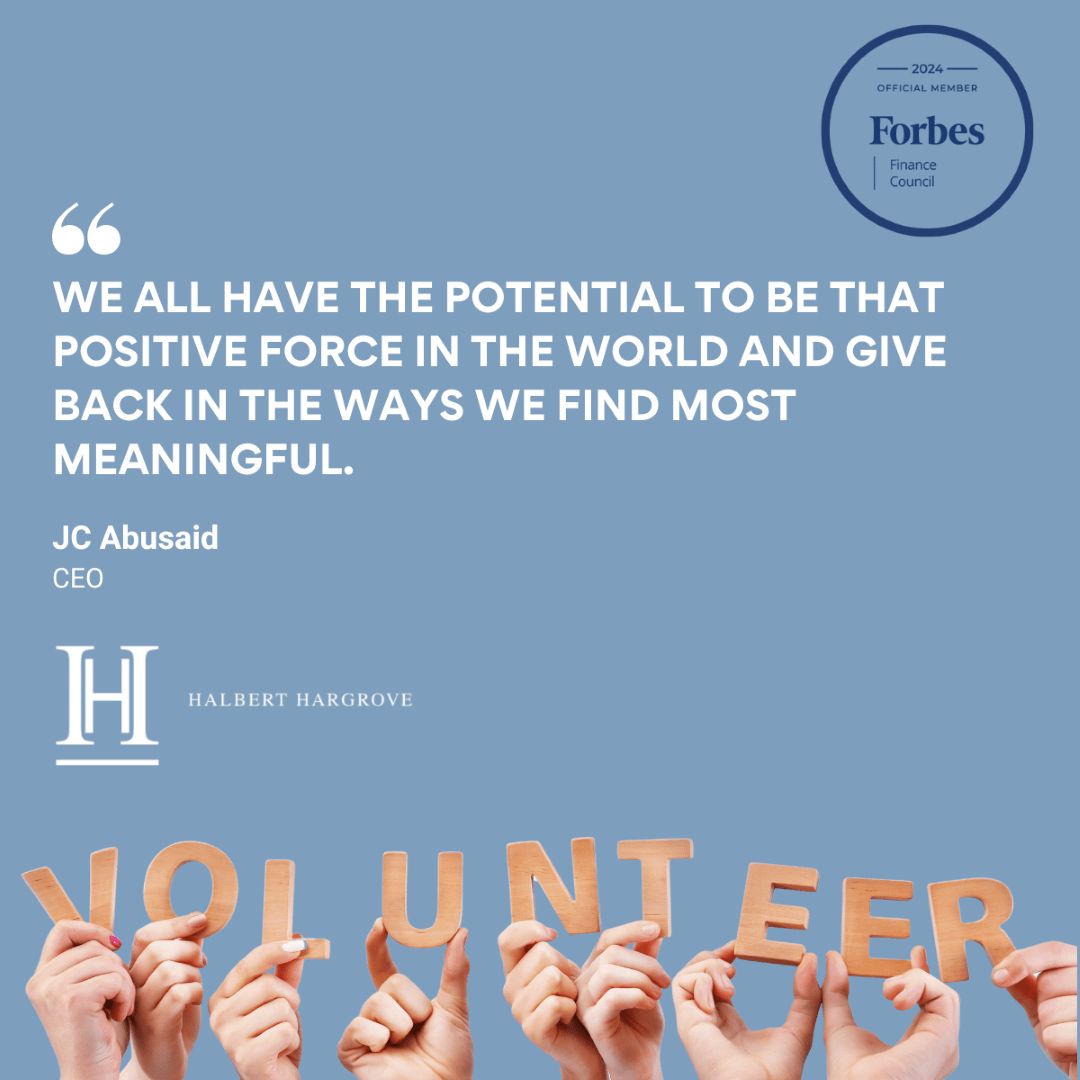By JC Abusaid, CEO/President, Featured in Forbes
JC Abusaid is the CEO and President of Halbert Hargrove, a wealth advisory firm headquartered in Long Beach, California.
Many companies recognize the deep value of community engagement and giving back—I’ll bet yours is no exception. Beyond the good that volunteering and other contributions can accomplish, your firm’s commitments speak volumes to your own people about your culture and values.
Our firm’s founder and executive chairman, Russ Hill, has been an inspiration for us from the start. He’s instilled a passion for giving back in our company culture, and because of him, this mindset continues to be a core part of who we are. At first, I didn’t understand why Russ was devoting such abundant time outside the firm—and would question the value of his investing so much of his energy and abilities elsewhere. I get it now. He has taught me a great deal about leadership and vision in the community, about undertaking substantial projects, about getting involved and fixing things that needed fixing.
The Benefits Of Volunteering
Besides the obvious positives of contributing to your community, volunteering generates so many other great benefits. People become their best selves. When your employees come together to donate their time and expertise, they share this goodwill as a team. These experiences solidify your company’s core values and feed engagement.
On a professional level, volunteering is an enriching experience that can improve employees’ leadership skills and broader skill sets. Some volunteer activities can lead to potential networking opportunities. Career Builder found that 60% of hiring managers see the act of volunteerism as a valuable asset when making recruitment decisions. We view it that way in our own hiring process.
Just as important are the personal life lessons. When volunteering, your people are gaining a broader perspective on the challenges faced by others in their community. This experience can provide employees with a broader sense of purpose. I’ve seen it happen again and again. Good will and good acts are, essentially, practices that enrich us—that build gratitude. We all need as much gratitude as we can get in our workplaces and our lives.
Establishing A Giving-Back Culture
As a senior leader, it’s up to you to show up and set the stage if your aim is a culture that prioritizes giving back. When you lead the charge, your people will be inspired to follow suit. You can make acts of giving part of the ongoing conversation, putting it front and center in the culture. Think big. Invest your efforts in a cause or an organization where you can make a significant impact.


